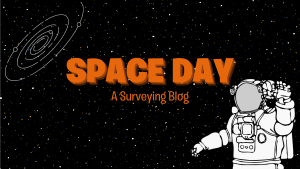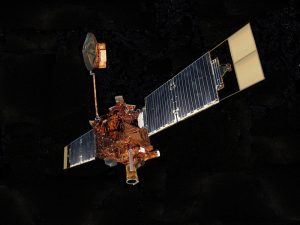It’s Space Day today!! ‘An unofficial educational holiday created in 1997 by Lockheed Martin, Space Day aims to promote the STEM (science, technology, engineering, and mathematics) fields among young people’.
What better way to celebrate than to explore some of the most fascinating space blogs on the internet… including a surveying aspect anyway. Let’s begin.

Do you fancy learning about surveying the stars?
In this mini course you’ll be able to:
–Understand the concept of triangulating distances to distant objects, including stars.
-Explain why space-based satellites deliver more precise distances than ground-based methods.
-Discuss astronomers’ efforts to study the stars closest to the Sun.
Check out this Astronomy course by Lunar Learning https://courses.lumenlearning.com/astronomy/chapter/surveying-the-stars/
Surveying on Mars is our next challenge?!
“Here on this very website, we describe surveying as, “the measurement and mapping of our surrounding environment using mathematics, specialised technology and equipment”.
As humanity reaches out to the cosmos, surveying techniques once again are called upon to mark our place in the universe. What is surveying’s role in exploring Mars?”
Read more here: https://www.alifewithoutlimits.com.au/blog/surveying-on-mars/

Mapping a Galaxy
Ever wondered how astronomers map celestial objects in the sky? New and improved ground-based telescopes and spacecraft are going to aid with this a lot. Including the star of this article, the Gaia Spacecraft by the European Space Agency.
Learn more about the mission that will map the positions and distances of roughly one billion stars:
https://www.scientificamerican.com/article/gaia-galaxy-mapping/
Wandered about taking the next steps to become an Astronomer?
The University of Nottingham have started to offer a 4 year long PhD/MPhil called ‘Engineering Surveying and Space Geodesy’.
“This PhD is based within the Nottingham Geospatial Institute (NGI).
NGI is a leading cross-disciplinary research and teaching institute, specialising in spatial and location-based science and engineering, using the technologies of satellite positioning, remote measurement systems and integrated sensor technologies”
Sounds like a fantastic opportunity for someone to embark on. Click here to find out more: https://www.nottingham.ac.uk/pgstudy/course/research/engineering-surveying-and-space-geodesy-phd

